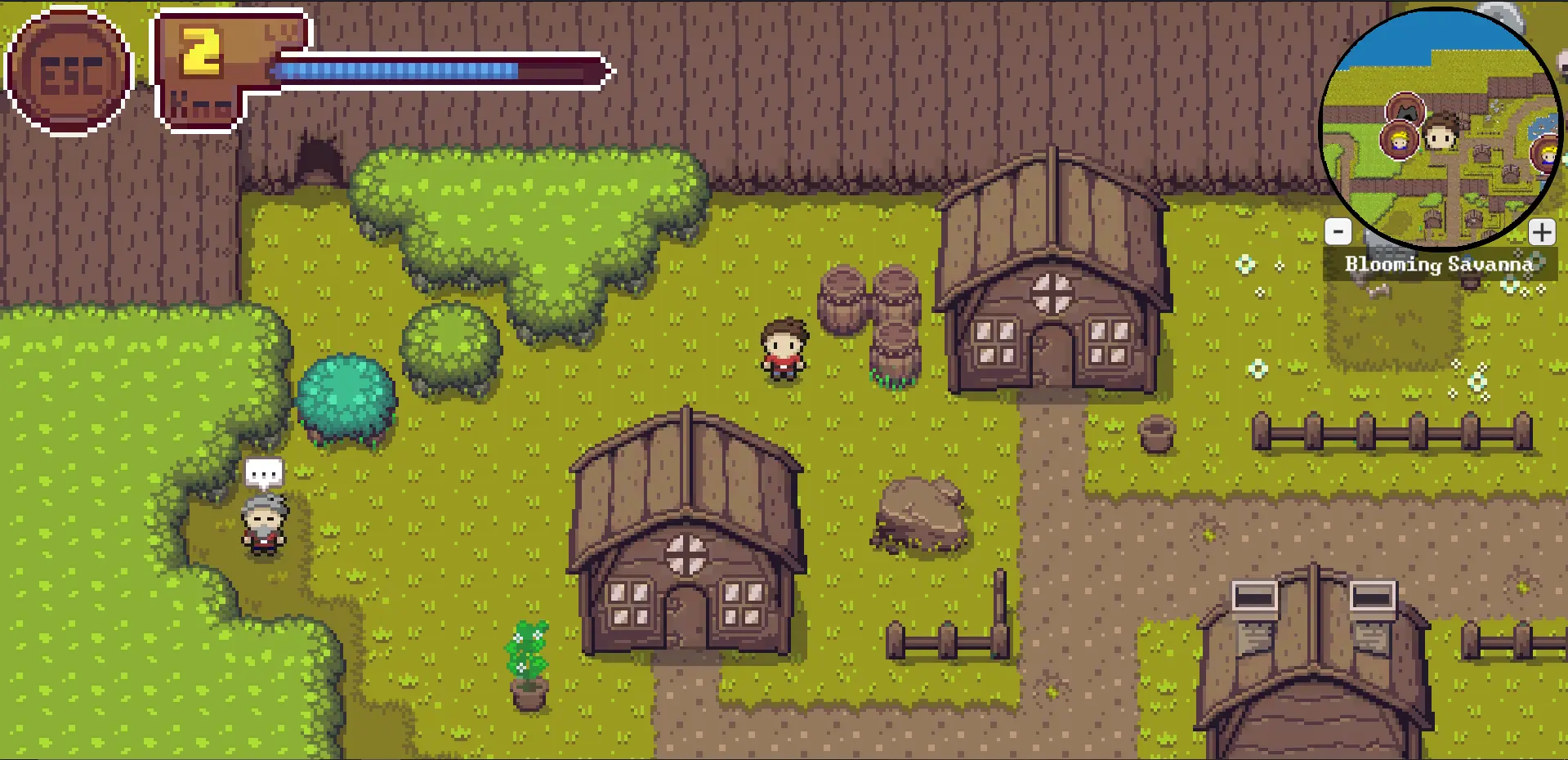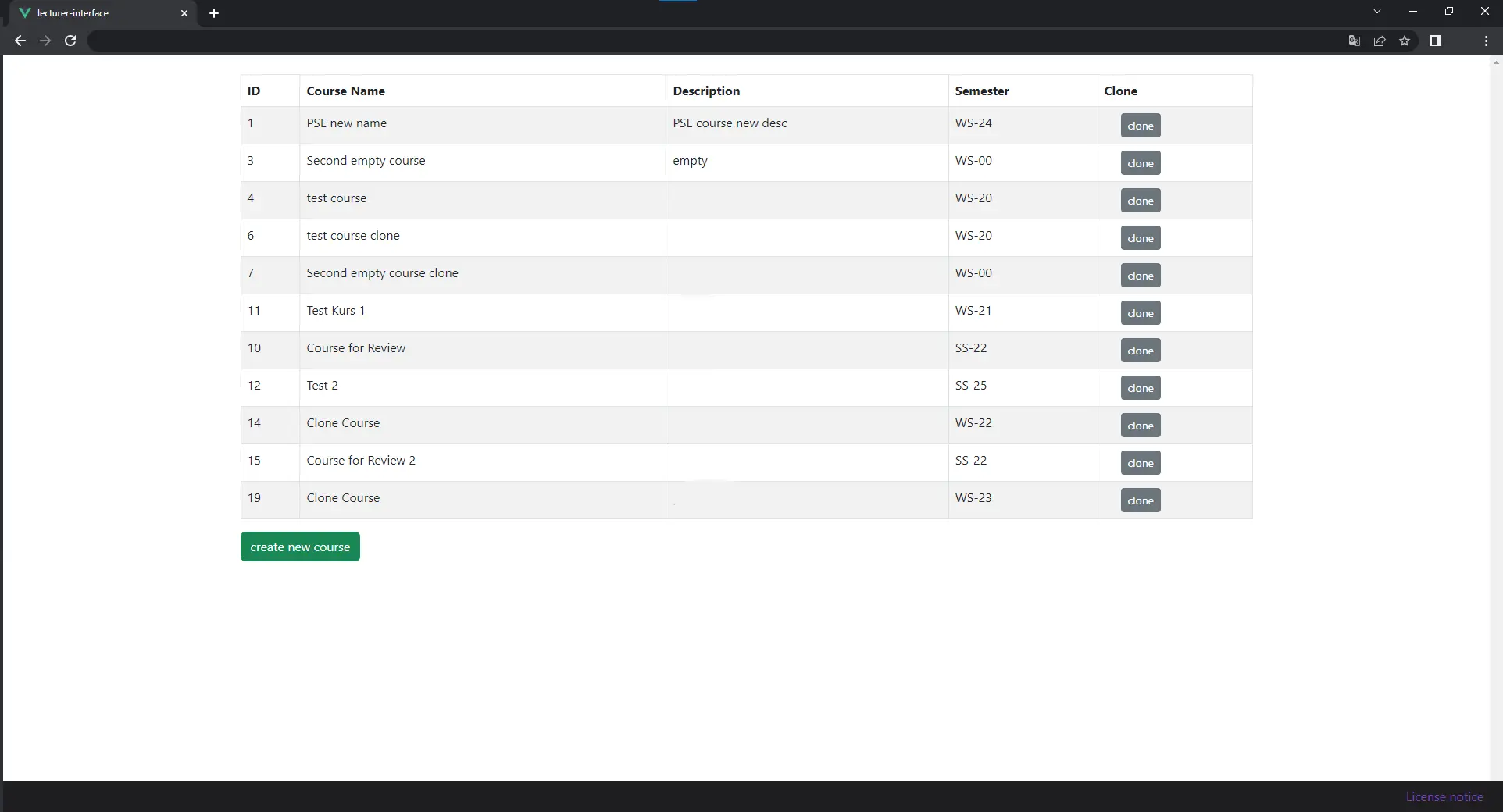Gamify-IT is a minigame platform for students.
Students can learn content by playing minigames.
Additionally, they can explore the large overworld and interact with it.
A lecturer configures the world and minigames.
They determine what questions the students are asked in a minigame, what hints to give the students (i.e., when a student talks to an NPC), …
For an in-depth explanation of each service, go to the user manuals
To learn how to install everything, visit the installation manuals. For a template on how to host, check out the run config.
Specific knowledge about services/ the architecture can be found in the developer manuals.
 The player (in the middle of the picture) can move around the World and interact with customizable content.
The player (in the middle of the picture) can move around the World and interact with customizable content.
 The lecturer can configure everything with the lecturer interface.
The lecturer can configure everything with the lecturer interface.
In the future, they might also see course statistics there.
information about all the different repositories
The docs repo contains the complete documentation.
We recommend https://gamifyit-docs.readthedocs.io/en/latest/ to view the docs as it always displays the content in a visually enhanced way.
The overworld repo contains all the assets, scripts, game logic, … to display and walk through the world.
The overworld backend repo stores all overworld data, whether it be the content of a course or player statistics.
Minigame runs are stored in the backend of the respective minigame.
The lecturer interface repo contains the Vue/Typescript Code for the Website where the Lecturer can configure the Game.
The chickenshock repo contains all the assets, scripts, game logic, … for the minigame Chickenshock. In Chickenshock, you get asked a question and shoot the chicken, which holds the correct answer.
The chickenshock backend repo stores the Chickenshock data, e.g., minigame runs.
The bugfinder repo contains the Vue/Typescript Code for the minigame website Bugfinder. This minigame simulates a chat between two programmers, where the player needs to find bugs in Java Code.
The bugfinder backend repo stores the Bugfinder data, e.g., minigame runs.
The crosswordpuzzle repo contains the Vue/Typescript Code for the minigame website Crosswordpuzzle. This minigame is a simple crossword puzzle that is configurable.
The crosswordpuzzle backend repo stores the Crosswordpuzzle data, e.g., minigame runs.
The finitequiz repo contains the Vue/Typescript Code for the minigame website Finitequiz. It is a short and straightforward quiz similar to many known TV Show formats.
The finitequiz backend repo stores the Finitequiz data, e.g., minigame runs.
The git card game repo contains the Vue/Typescript Code for the minigame Website Git Card Game. This minigame is a prototype.
The git card game backend repo stores the Git Card Game data, e.g., minigame runs.
The memory repo contains the Vue/Typescript Code for the minigame Website Memory.
The memory backend repo stores the Memory data, e.g., minigame runs.
The towercrush repo contains the Vue/Typescript Code for the minigame Website Towercrush.
The towercrush backend repo stores the Towercrush data, e.g., minigame runs.
The tower defense contains all the assets, scripts, game logic, … for the minigame Tower Defense.
The tower defense backend repo stores the Tower Defense data, e.g., minigame runs.
The regex game repo contains the Vue/Typescript Code for the minigame Website Regex Game. This minigame is a prototype.
The regex game backend repo stores the Regex Game data, e.g., minigame runs.
The authentification validator repo
The issues repo contains all the issues across the Project. Instead of opening issues in the individual repositories, they are created here.
The run config repo contains the hosting template and a manual on using it. The hosting configuration used by us is also placed there.
The story repo contains brainstorming and ideas about a story for the overworld. It is currently unfinished since we put the focus on polishing the game more.
The third party license notice repo contains the website's code that displays all the Third Party Licenses.